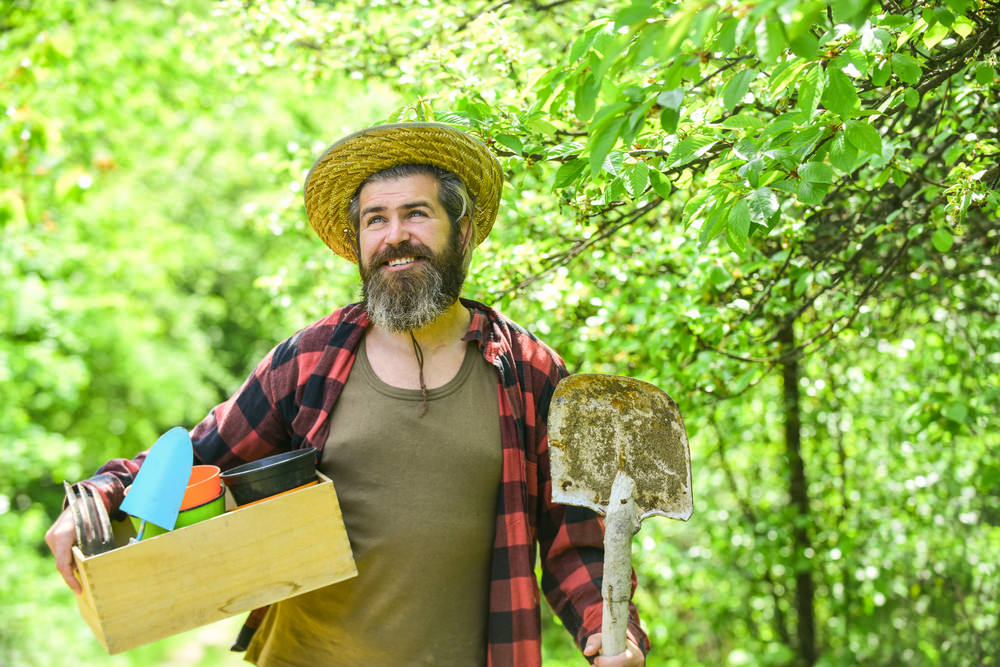Not everyone has a green thumb like the farmers that vend at Frisco Fresh Market, but that doesn’t mean you can’t get there. If you’ve recently discovered the joys and challenges of growing your own food using organic methods, congratulations!
Whether you are a seasoned gardener looking to try organic techniques or a complete newbie, we’ll explore every aspect of beginning organic gardening. So let’s dig in and see what nature has in store for us…
Choose the Right Location
Make sure your garden plot gets at least 6 hours of sunlight per day and has ready access to water. It’s important to maximize the amount of air and sunlight your plants get and to make sure you have enough room in the plot for all the things you want to plant!
Start with Good Soil
Healthy soil is key to a successful garden, and the more food you can offer your plants the better. Composting or adding aged manure will improve the soil quality greatly.
Choose Your Plants Carefully
Select plants that are well-suited for your region and climate. Native plants are often the best choice, but you can sometimes go by the dominant climate, too.
Depending on the laws in your state, it may be illegal to import exotic plants from far away. In Texas, for example, which is a climatic match for Australia in some ways, there’s a long list of things you can’t import that you should peruse before getting any big ideas.
Use Organic Fertilizers
Organic alternatives to chemical fertilizers include compost, worm castings, and/or seaweed extract. You can start a compost pile right on your kitchen counter by saving up your non-meat table scraps, then transferring them to a bin for composting. Limiting waste by putting your scraps back into the soil is a great way to keep up a self-sustaining garden!
Practice Crop Rotation
To prevent soil-borne diseases and pests, you should rotate your crops. This simply means planning and planting different things each season and year.
Plant the Three Sisters
The “Three Sisters” originated with the Haudenosaunee (Iroquois). You plant corn, beans, and squash together in one mound. These three foods are fairly complete nutritionally as a group, and all three can be preserved easily and eaten year-round.
In some ways, the Three Sisters are the ultimate in organic gardening because of their tidy simplicity and synchronicity.
- The mound helps with drainage to avoid waterlogging the roots of all three plants.
- Corn provides the stalks for the beans to climb, so they don’t compete with the sprawling squash vines down on the mound.
- The beans provide nitrogen from out of the air to fertilize the soil and stabilize the corn plants during inclement weather or windy days.
- The large leaves of the squash plants provide shade, retaining soil moisture.
Control Pests Naturally
You can naturally control garden pests using several methods. Here are some effective ways to control garden pests without using harmful chemicals:
Companion Planting
Companion planting, or planting certain plants near each other, can help repel pests. Marigolds around the perimeter of your garden can help repel nematodes, for example.
Handpicking
Picking pests off your plants by hand can be effective for smaller infestations. Put on some gloves and remove any visible pests from your plants. It’s that simple, but it really works.
Beneficial Insects
Attracting (or supplying) beneficial insects like ladybugs, lacewings, and praying mantises can help a great deal because they feed on aphids, caterpillars, and other pests.
Natural Sprays
You can make some great natural elixirs to control garden pests right at home. Mixing water and organic dish soap is effective against soft-bodied insects like aphids.
Neem Oil
A natural pesticide derived from the neem tree, neem oil is effective against a wide range of garden pests. Best of all, it’s safe for beneficial insects.
Row Covers
Row covers are made of lightweight fabric that allows sun, air, and water to pass through. Covering your plants with these veil-like coverings prevents the pests from getting to them.
Crop Rotation (Again)
Rotating your crops isn’t just great for your plants and soil, it can also help prevent pests from building up. Since pests tend to be specific to certain plants, rotating your crops breaks their life cycle.
Water Wisely
Water deeply and infrequently to encourage deep root growth. Stick to watering the base to avoid moisture buildup that can waterlog your plants or make them sick. Consider using a drip irrigation system to conserve water, making your organic garden even more sustainable.
Visit Frisco Fresh Market and Pick Up Some More Gardening Tips
Gardening takes time and effort, but the rewards are so worth it! Stay committed and enjoy the process! Remember, gardening is a continuous learning process, and there will be challenges along the way. And don’t be afraid to ask for help or seek advice from the experienced gardeners at Frisco Fresh Market while you’re there picking up the week’s goodies!
